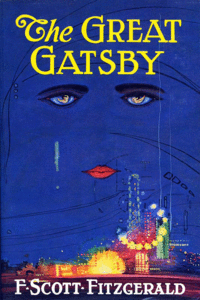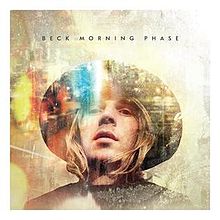[contextly_auto_sidebar id=”Jai56XiddmTkDBhUq1fwtKRmcQk3eCCw”]
WHO wrote the Great American Novel? Does such a category make any sense? Did it ever? A provocative essay argues that we’ve outgrown the term, and that it was wrong to begin with. Whether we’re talking about Melville’s Moby Dick or Pynchon’s Gravity’s Rainbow, my old colleague David Ulin writes, we’re missing the real point of fiction.
What the Great American Novel relies on as a concept is the notion that there is some unifying experience, some core or set of values, that we as Americans all share. But as our political life daily reminds us, this is not the case. Not only that, but it misreads the fundamental function of literature, which is less about the grand defining statement than it is about empathy.
 Why does a call for or assessment of the Great American Novel continue, as it does in a new book by Harvard professor Lawrence Buell, The Dream of the Great American Novel?
Why does a call for or assessment of the Great American Novel continue, as it does in a new book by Harvard professor Lawrence Buell, The Dream of the Great American Novel?
The novel, of course, has been bound up with issues of “Americanness” for a very long time. Despite our giant-killing, spirit of ’76 self-image, both the United States and the novel itself are the products of England’s 17th and 18th centuries. In some ways this country defined itself in print for hundreds of years — and sometimes most eloquently (as in the work of Mark Twain or Scott Fitzgerald, say) in imaginative prose. It’s hard to imagine the search for the Great Danish novel or the Great Brazilian novel having the same resonance, despite the richness of those nation’s literary tradition.
It’s worth pointing out something that’s obvious to those of us in Los Angeles but perhaps less clear from elsewhere. If you live on the West Coast, or perhaps anywhere West of the Hudson, it’s impossible to miss the fact that the life you live and the world you see around you is very far from that of the publishing and intellectual establishment in New York and to some extent the Northeast (what we in LA call “the East.”) Since work from the West is often deemed “regional” literature, the notion of a single novel that encompasses all of American experience becomes harder to believe in.
And as several authors said at a recent conference, Writing From California, L.A. is so sprawling and segmented and diverse it’s hard to think of a novel that even encompasses this one city. (We may not again have a great L.A. novel, then.) No one knows this better than Ulin, who has written extensively on Los Angeles literature.
This said, I’m intrigued but not entirely convinced by his essay. That creaky old category may have some substance left in it — I certainly felt that Jonathan Franzen was getting there, in a way both retro and lively, in The Corrections. What exactly do I disagree. Not sure — may return to this.
FINALLY: Speaking of L.A., the musician Beck has shadowed me in some ways my entire adult life. I recall hating some of his early singles, then discovering (and loving) his overlooked country-blues record, One Foot in the Grave, being won over by Odelay (reviewed in the LA Times by a rock critic who is now my wife) and going up and down over the years with his ensuing work as he picks on and discards one mask after the other. His Song Reader concert at Disney Hall last fall, with Jarvis Cocker, Jack Black, a gospel choir, etc, was one of the year’s highlights, and I’m currently working out some of the songs from that wonderful collection of sheet music on acoustic guitar. (Particularly, I’ve gotten reasonably good on the Woody Guthrie-ish “America, Here’s My Boy.”)
A long way of saying: I like much of what I hear from his new record, Morning Phase (especially the song “Blackbird Cage.”) What’s sticking in my craw is all the reviews that say that this warm, mellow, unironic record is like his post-breakup record, Sea Change, but way better! (My favorite assessment of the new album, by the way, is this one by Ben Ratliff.)
To my ear, Sea Change is still one of Beck’s very finest, maybe his best record period, and certainly his most soulful. If Morning Phase grows on and speaks to me over time the way that one has, it will have made quite a journey. In any case, Beck is back, for me, as a major artist. Now let me get back to some of those tougher numbers from Song Reader.

Don’t thrust novel form in national boundary ,writer wrote novel for all mankind it appeal is universal.if it appeal is not universal that stuff is not novel at all. That was written for entertainment purpose for local public you may called it national novel.There are thousands novels wrote world over ,their life is momentary but novel just like Moby Dick remain century after century in psyche of readers.